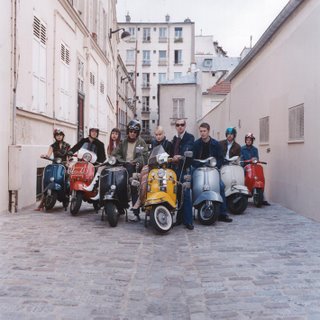
Poor little FRANKIE
Are spiritually aware parents really any better at parenting? CJ Stone advocates a few more cuffs around the ear...
http://hubpages.com/hub/Poor-Little-Frankie-the-limits-of-child-centred-education
Ten Thousand Days. Ten Thousand Dreams. Ten Thousand Cups of Early Morning Tea



 Light as Bone
Light as Bone
Pub palmistry.
CJ Stone meets a man in the pub who leads him to ponder the question of fate and the choices available to you...
I met him in a pub. I was drinking a pint, and generally keeping an eye on people, wondering what their stories were. There were four young people at the table next to me, enthralled by their own conversation, and, across the other side of the room, in a window seat, an old couple.
That's where he was, sitting with the old couple, reading the woman's palm. He had on a ripped, black tee-shirt, and black trousers tucked into motorcycle boots. His hair was long and tied back, and he had a bum-bag around his waist. He was drunk. I could tell by the way his eyes drooped, and his deliberate manner. It was as if he was trying desperately to hold things together. He was reading the woman's palm, stroking it lovingly. There were two pound coins on the table. This was obviously how he made his drinking money. When he'd finished, the woman added another pound from her purse. He shook hands with both of them, but held the woman back as she was about to follow her husband out of the pub. He gave her a conspiratorial kiss, and whispered in her ear. He was acting like a gigolo. I couldn't keep my eyes off the scene. He noticed me looking, and laughed. I guess there was amusement in my eyes too. He came over to talk to me.
We had a brief initial conversation about work and such things and then I asked him to read my palm. I mean: I'm fascinated by all that. I wanted him to read my palm so I could get an insight into his thoughts.
He said, "when you were young you were a loving son, but your Mom and Dad split up at an early age."
"No they didn't," I told him. "They're still together."
"Something happened. Maybe they didn't split up. Maybe they just talked about it. You were a baby, so you wouldn't know. Anyway, ever since then you've been losing heart. I mean, you've been getting depressed."
This is the stuff of palmistry, I realised: vagaries laced with approximations. There was a certain amount of truth in what he told me, and a certain amount of fishing for information. He told me that I'd had a failed affair, and hadn't got over it yet, which was true. He looked at the lines on my face and said, "you worry a lot." This is also true, though it doesn't take much to see it. I had a newspaper open in front of me. I wanted to say, "that's what worries me, that we live in such a dangerous and messed up world." All the time I was thinking, "come on, come on, tell me something real." I think he sensed my scepticism. He stopped suddenly and said, "I can't tell you any more."
"Why not?" I asked.
"I daren't."
"Oh go on," I said, "tell me."
"Oh all right then. How can I put this diplomatically? I can see murder in your hands. You’re going to murder someone."
Well I laughed at that. What else could I do? It was like a line from some bad Gothic novel. It's a good job I'm fairly strong minded, fairly certain about myself and my role in life. I said, "that's not true."
"It is true," he said. "You've wanted to murder someone, or you're going to murder someone, or you've thought about it. You've dreamed about it, haven't you?"
He was still trying to make his descriptions fit the facts.
At this point a group of people came in and sat at a nearby table. "Oi you!" he called out, but they ignored him. He turned to me. "Those people were in the Dog and Duck last night.”
I think he was trying to distract me from his failed palm-reading attempt.
But all this had me reflecting. I was thinking about palmistry. The problem with it - aside from the fact that this guy couldn’t do it - is that it creates a concept of the world based on the individual self. It occupies the safe ground of the purely personal. It says that fate is written in the palm rather than in the world. It doesn't tell you how you can change your fate or how you can change the world. It offers you no choices. It says, this is your life, here in the palm of your hand. This is how long you will live. This is your health, and these are your motivations. It doesn’t tell you about the world and its motivations, nor how these might reflect upon you. It creates an image of the world as made up of isolated individuals.
Me: I prefer to think that my fate is in my heart, rather than in my hand, and that I am part of a process created by us all collectively as well as individually. I prefer to think that it’s what we do that matters, rather than what some crumpled lines tell us, that we all count for something in each other’s lives, and that we are not alone.
Afterwards he asked me: “what star-sign are you?
“Guess,” I said.
“Let me see,” he said. “Taurus?”
“No.”
“Aries?"
“No.”
“Sagittarius? Cancer? I'll probably slap myself when I find out."
"I'm a writer, and I have a split personality," I told him, trying to put him out of his misery.
"Ah: Pisces."
"No."
"I can't work it out. Go on, tell me."
"I'll leave you to it," I said, "I' m going to get a drink. By the way," I added, "you were right, I am a murderer. I could murder a pint right now..."
*******
*******
